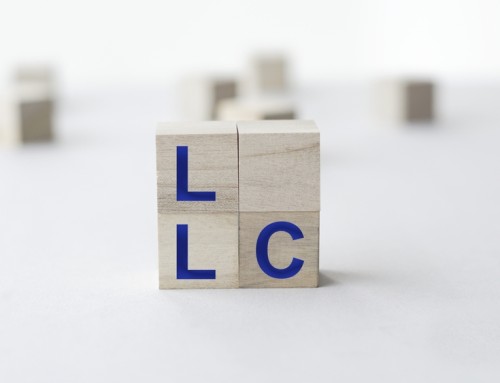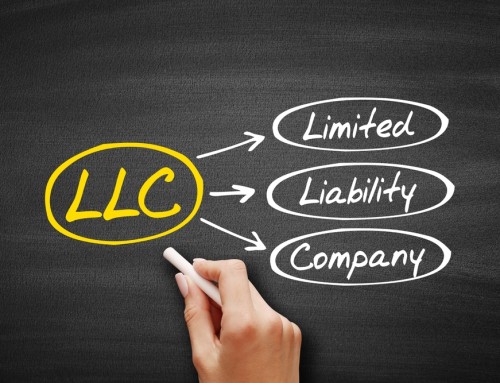Why Estate Planning Is Essential
No one likes to think about death or incapacity, but preparing now can make all the difference for your loved ones. Estate planning isn’t just about deciding who gets what—it’s about protecting your assets, avoiding probate, and ensuring your wishes are followed.
At KEYTLaw, we provide our clients with a detailed estate plan portfolio that includes everything they need. But what do these documents actually do? What happens if you don’t have them in place? Understanding the role of each component in your estate plan will help you make informed decisions that secure your future and provide peace of mind for your family.
What Is a Will vs. a Trust?
A Last Will and Testament is a legal document that outlines your wishes for your assets after you pass. However, if assets remain in your name at the time of your death, they may still need to go through probate, a costly and time-consuming legal process.
A revocable living trust, on the other hand, allows you to transfer assets without probate. It also provides built-in protections in case you become incapacitated, as your successor trustee can manage your affairs.
Why Avoiding Probate Matters
Probate can take months or even years, depending on the complexity of the estate. During this time, your beneficiaries may not have access to the funds they need. Additionally, probate is a public legal process, meaning anyone can see your estate details, including creditors or potential disputes from family members.
A trust helps bypass this process, ensuring your assets are managed privately and efficiently. By placing your property, accounts, and investments into a trust, you ensure that they are distributed according to your wishes without the need for court involvement.
How a Power of Attorney Protects You
A financial power of attorney ensures someone can manage your money and property if you become incapacitated. Without one, your family would have to go through court proceedings to gain access to your finances, which can be costly and time-consuming.
A healthcare power of attorney lets a trusted person make medical decisions on your behalf. If you are unable to communicate, this document ensures that your chosen representative can authorize treatments, approve or decline surgeries, and handle critical health decisions.
Why a Power of Attorney Matters
If you don’t have a power of attorney, your loved ones may be left without a legal way to access your financial accounts or make healthcare decisions on your behalf. This could lead to a court appointing a guardian or conservator—someone who may not be the person you would have chosen.
By naming your own trusted individuals through a power of attorney, you retain control over who manages your affairs should you ever need help.
What Happens If You Don’t Fund Your Trust?
Even if you create a trust, it won’t work unless you transfer your assets into it. That means updating property deeds, retitling bank accounts, and ensuring beneficiary designations align with your trust.
At KEYTLaw, we provide clear instructions to help you properly fund your trust, ensuring that your assets are fully protected. This step is crucial because any assets left outside the trust may still need to go through probate.
The Importance of a Personal Property Memorandum
One of the most common disputes among heirs involves personal belongings, not large assets. A personal property memorandum allows you to list specific items—like jewelry, heirlooms, or collectibles—and designate who should receive them.
This document helps prevent family conflicts and ensures your cherished possessions go to the intended recipient. Without a clear plan, family members may argue over sentimental items, leading to unnecessary tension and disputes.
Common Items Listed in a Personal Property Memorandum
- Jewelry and watches
- Family heirlooms
- Collectible items (coins, antiques, etc.)
- Furniture or artwork
- Special keepsakes with sentimental value
By documenting your wishes in a personal property memorandum, you give your family the clarity they need to avoid disagreements.
Why a HIPAA Authorization Is Essential
Many people don’t realize that medical privacy laws can prevent their loved ones from accessing their health records in an emergency. Without proper authorization, hospitals and doctors may refuse to share information—even with a spouse or child.
A HIPAA authorization allows you to grant specific individuals the legal right to access your medical information. This is particularly important in medical emergencies where quick decisions need to be made.
Without this document, your loved ones may struggle to obtain vital information about your condition, delaying necessary treatments or decisions.
The Death or Incapacity Checklist: A Crucial Step for Your Family
An estate plan is only effective if your loved ones know what to do when the time comes. That’s why we provide a Death or Incapacity Checklist, which outlines the key steps your family should take in the event of your passing or incapacitation.
This checklist includes instructions on:
- Notifying family members and legal representatives
- Accessing financial accounts and insurance policies
- Managing real estate and business interests
- Locating estate planning documents
- Handling funeral and burial arrangements
By following this guide, your family can navigate the legal and financial responsibilities more easily, reducing stress during an already difficult time.
Ensuring Immediate Access to Your Documents with DocuBank
Even with a well-organized estate plan, it’s essential to ensure that your key documents are accessible when they’re needed. That’s why we provide membership in DocuBank, a service that gives hospitals and medical providers instant access to your healthcare directives.
With DocuBank, your living will, healthcare power of attorney, and HIPAA authorization are stored electronically and can be retrieved 24/7 by authorized individuals. This eliminates the risk of important documents being locked away at home when they are urgently needed at a hospital.
Who Needs an Estate Plan?
Estate planning isn’t just for the wealthy—it’s for anyone who wants to ensure their wishes are honored and their loved ones are taken care of. You don’t need to own a mansion or have millions in the bank to benefit from an estate plan. If you:
- Own a home or other assets
- Have children or dependents
- Want control over your healthcare decisions
- Wish to avoid probate and legal disputes
Then an estate plan is a smart investment in your future security.
The Cost of Not Having an Estate Plan
Without a plan in place, your loved ones may face:
- Lengthy probate proceedings – Delaying access to assets for months or years
- Expensive legal fees – Probate and court costs can take a significant portion of your estate
- Family disputes – Lack of clarity over inheritances can lead to conflict
- Court-appointed guardianship – The court may decide who manages your affairs if you are incapacitated
Your Next Steps
Estate planning is an investment in your future and your family’s security. Having the right documents in place ensures a smooth transition and prevents unnecessary legal battles.
At KEYTLaw, we simplify the estate planning process, providing a structured and legally sound system that keeps everything organized.






